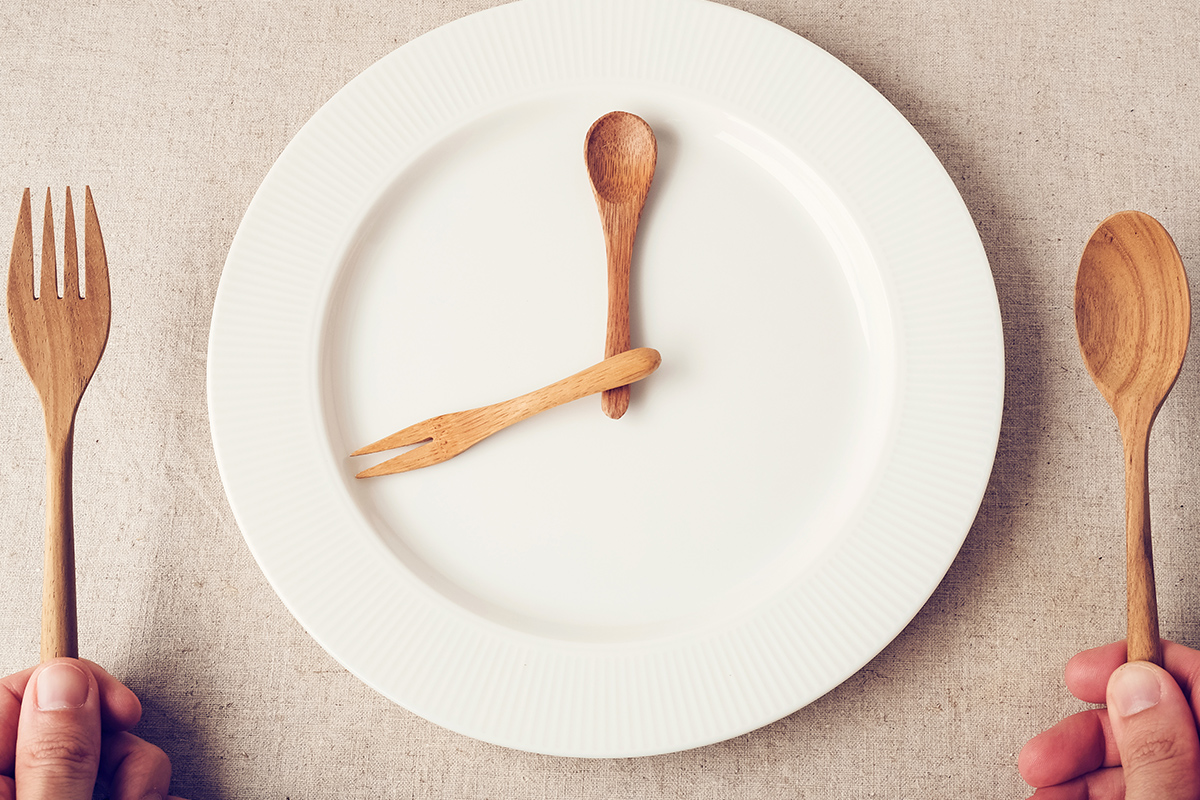Why am I Gaining Weight Despite Diet and Exercise? │ QA
If you’re careful with your nutrition, working out weekly, and still experiencing problems with your weight, take a moment to read this QA.


I’m 69 years old, I work out 3 times a week for 2 hours, 2 of those days are dedicated to upper/lower weight workout and the 3rd day strictly cardio on the treadmills and bike. I had a personal trainer for 6 months and I learned a lot of methods to workout. I’m careful with my intake and do not overindulge with high calorie or fatty foods, I’m frustrated when I get on the scale at the gym and at home, I gain pounds vs. seeing the numbers go down. It could be my metabolism (as one ages it drops drastically), just looking for answers, tips, suggestions. Thanks!
– Lydia C.

I understand your frustration, Lydia. Total pounds are easy to measure but won’t reflect body composition improvements. Ideally, you’d have tracked body fat percentage over the last 6 months. A tilt toward lower fat and more lean body mass indicates your metabolism should keep up. As body fat is reduced and muscle is gained the scale may not change (or go up). There is water stored with every pound of muscle, due to increased glycogen capacity.
Another approach is to monitor waist, hip, and thigh circumferences by breaking out the tape measure. Reflect on how your clothes fit. If you’ve got any more wiggle room than 6 months ago – success! Also note progress in fitness level… strength, endurance, and intensity level. All these observations are better indicators of improvement than total weight.
It makes a difference whether your weight workouts are focused on heavy weight with lower repetitions or more repetitions with less weight. The latter helps develop strength and muscles’ functional output while the former is intended to build up muscle (thus may increase weight). Once you tolerate a level of cardio (time, intensity, duration, or frequency) you’ve adapted to it and need further increases to promote greater fat burning. In the same regard, if your diet is good, but no better than before, then physique change is less likely.
In summary: focus on body composition, not scale weight, and look to where you can refine your diet and exercise regimen. Keep up that dedication!
– Debbie J., MS, RD
This article should not replace any exercise program or restrictions, any dietary supplements or restrictions, or any other medical recommendations from your primary care physician. Before starting any exercise program or diet, make sure it is approved by your doctor.
Some questions have been edited for length and/or clarity.
 Have a nutrition question? Our registered dietitian is ready to help!
Have a nutrition question? Our registered dietitian is ready to help!
Email nutrition@lafitness.com or submit your question below and it may be featured in an upcoming article!
If you’re careful with your nutrition, working out weekly, and still experiencing problems with your weight, take a moment to read this QA.
Blood sugar control isn’t easy. These are Debbie’s top recommendations for how to address weight control with Type II Diabetes.
Does Intermittent Fasting give you enough time to pack the day's protein? Our registered dietitian helps clear up the confusion!


My name is Martin and I have Type 2 Diabetes. My A1C is very high and I struggle with a good diet plan or what to eat. Do you have any advice for me? Thank you
– Martin

So glad you realize the importance of controlling your diabetes, Martin. The best advice will be directly from a Registered Dietitian that you can sit down with and go over your particular diet and daily blood sugar levels, not only your Hemoglobin A1C. Preferably that person should also be a Certified Diabetes Educator® (carries the CDE® credential) who is a health professional who possesses comprehensive knowledge of and experience in diabetes prevention, prediabetes, and diabetes management.
Top recommendations for Type 2 Diabetes from such experts address weight control and balanced meals, including the following advice*:
*taken from Burns, J. “Lifestyle & Healthy Eating Tips For Diabetes Type 2” The Diabetes Council (2018, Oct. 17) https://www.thediabetescouncil.com/lifestyle-dietary-tips-for-diabetes-type-2/
– Debbie J., MS, RD
This article should not replace any exercise program or restrictions, any dietary supplements or restrictions, or any other medical recommendations from your primary care physician. Before starting any exercise program or diet, make sure it is approved by your doctor.
Some questions have been edited for length and/or clarity.
 Have a nutrition question? Our registered dietitian is ready to help!
Have a nutrition question? Our registered dietitian is ready to help!
Email nutrition@lafitness.com or submit your question below and it may be featured in an upcoming article!
If you’re careful with your nutrition, working out weekly, and still experiencing problems with your weight, take a moment to read this QA.
Blood sugar control isn’t easy. These are Debbie’s top recommendations for how to address weight control with Type II Diabetes.
Does Intermittent Fasting give you enough time to pack the day's protein? Our registered dietitian helps clear up the confusion!


I’m wanting to start intermittent fasting for the numerous benefits it has… yes, including a little fat loss as well! The only issue is that I’m also trying to add muscle at the same time. Subscribing to the 1-2 grams of protein per body pound theory, is that enough time in the IF window to ingest that much protein? (I weigh 230 now, that’s a lot in a short window of time! ? What are the recommendations in order to achieve this with IF and low-carb/high protein? Is it even possible? Thanks!
– Chris T.

First, I’d modify your protein goal to the lower end of the range you proposed: 1 gram per pound goal body weight. That’s still over the 1.7 gm protein/kg recommended by the American College of Sports Medicine to increase muscle mass. Since there is no physical storage of amino acids in the body, consuming large quantities of protein at once doesn’t mean you’ll use all of what you eat.
For intermittent fasting, I’d advise breaking down your total so that you’re consuming 30-40 grams of protein* every 2-3 hours for the span of time you do eat. Remember to support your workouts with protein before, during and after to provide your muscles with amino acids when it needs them most and to promote muscle protein synthesis.
* Amount of protein generally supported in the literature as that which can be utilized at one sitting.
Schoenfeld, B.J., Aragon, A.A. How Much Protein Can the Body Use in a Single Meal for Muscle-Building? Implications for Daily Protein Distribution. Journal of the International Society of Sports Nutrition; 15, 10 (2018). https://doi.org/10.1186/s12970-018-0215-1
– Debbie J., MS, RD
This article should not replace any exercise program or restrictions, any dietary supplements or restrictions, or any other medical recommendations from your primary care physician. Before starting any exercise program or diet, make sure it is approved by your doctor.
Some questions have been edited for length and/or clarity.
 Have a nutrition question? Our registered dietitian is ready to help!
Have a nutrition question? Our registered dietitian is ready to help!
Email nutrition@lafitness.com or submit your question below and it may be featured in an upcoming article!
If you’re careful with your nutrition, working out weekly, and still experiencing problems with your weight, take a moment to read this QA.
Blood sugar control isn’t easy. These are Debbie’s top recommendations for how to address weight control with Type II Diabetes.
Does Intermittent Fasting give you enough time to pack the day's protein? Our registered dietitian helps clear up the confusion!


How many egg yolks are allowed per week when trying to lower my LDL cholesterol?
– Theresa D.
Based on my friend’s advice, I’m eating one boiled egg at each meal, that’s three times a day for me. But now I fear about the effects on cholesterol. So far, I’m good. But what is your advice about eating three eggs each day, every day. I do work out on the treadmill for 30 minutes and weight lift for 30 minutes every day. Regards,
– Abdu K.

Egg consumption in relation to high cholesterol levels was a much debated topic 30 years ago, but confusion still remains. On the whole, eggs are healthy – they contain many nutrients and are good sources of vitamins A and D. One egg yolk contains 5 grams of fat, including 1.5 grams of saturated fat, and approximately 186 mg of cholesterol. Though eggs are high in cholesterol, it’s the saturated fat that has greater impact on your blood cholesterol.
“Eating foods that contain saturated fats raises the level of cholesterol in your blood.” – American Heart Association
Prominent dietary sources of saturated fat are bacon, sausage, meat, eggs, butter, cheese and processed foods containing palm, palm kernel and coconut oils. It’s often how eggs are prepared (in butter) or served (with bacon, sausage, cheese, muffins, or scones) that’s the culprit in affecting dietary cholesterol.
Most people can eat an egg daily without increasing their risk for heart disease. If you have diabetes, are at high risk for heart disease, or already have heart disease then it’s wise to limit egg consumption to no more than three per week. Remember that only the yolk contains the egg’s saturated fat, so these guidelines refer to whole eggs, not egg whites or egg substitute.
Sources:
– Debbie J., MS, RD
This article should not replace any exercise program or restrictions, any dietary supplements or restrictions, or any other medical recommendations from your primary care physician. Before starting any exercise program or diet, make sure it is approved by your doctor.
Some questions have been edited for length and/or clarity.
 Have a nutrition question? Our registered dietitian is ready to help!
Have a nutrition question? Our registered dietitian is ready to help!
Email nutrition@lafitness.com or submit your question below and it may be featured in an upcoming article!
If you’re careful with your nutrition, working out weekly, and still experiencing problems with your weight, take a moment to read this QA.
Blood sugar control isn’t easy. These are Debbie’s top recommendations for how to address weight control with Type II Diabetes.
Does Intermittent Fasting give you enough time to pack the day's protein? Our registered dietitian helps clear up the confusion!


Hi my name is Alex, I am a 22–year–old male, about 5’5” in height, and I weigh about 123 pounds. I recently have changed my diet from regular eating to plant–based food which seems to give me more energy and better sleep. I was curious about how many macronutrients I should be getting and how many calories I should eat. I work out about 5-6 times a week, do cardio first for about 20-30 minutes, and then do about 45-60 minutes of intense cardio and weightlifting.
Thank you,
– Alex

Using a predictive energy calculation* it seems your total energy expenditure (TEE) falls in the range of 2600-2800 calories per day based on resting energy need + physical activity where the PA factor is 1.27 for active men. To determine macronutrient amounts, you could allocate 50-60% of energy to carbohydrates, 15-20% to protein and the remaining 20-35% to fat given your exercise level and reliance on plant foods. From 2700 calories and the midpoint of each macro range, this would calculate to about 370 gm Carb., 122 gm Prot., and 81 gm Fat daily.
Your macronutrient needs and goals shouldn’t really change much based on the source of your food. However, switching to eating all plants (strictly vegan) may mean getting fewer micronutrients if not done properly. So amping up your consumption of iron, zinc, magnesium and calcium may necessitate an adjustment in diet to increase plant sources of those minerals. Please see the Institute of Medicine’s Dietary Reference Intake tables of vitamins and minerals for your micronutrient intake targets.
*TEE for men = 864 − 9.72 × age (years) + PA × [(14.2 x weight (kg) + 503 × height (meters)]
Equation source:
Gerrior S, Juan W, Basiotis P. An easy approach to calculating estimated energy requirements. Prev Chronic Dis [serial online] 2006 Oct [date cited]. Available from: http://www.cdc.gov/pcd/issues/2006/
oct/06_0034.htm. Accessed 1.24.2020
– Debbie J., MS, RD
This article should not replace any exercise program or restrictions, any dietary supplements or restrictions, or any other medical recommendations from your primary care physician. Before starting any exercise program or diet, make sure it is approved by your doctor.
Some questions have been edited for length and/or clarity.
 Have a nutrition question? Our registered dietitian is ready to help!
Have a nutrition question? Our registered dietitian is ready to help!
Email nutrition@lafitness.com or submit your question below and it may be featured in an upcoming article!
If you’re careful with your nutrition, working out weekly, and still experiencing problems with your weight, take a moment to read this QA.
Blood sugar control isn’t easy. These are Debbie’s top recommendations for how to address weight control with Type II Diabetes.
Does Intermittent Fasting give you enough time to pack the day's protein? Our registered dietitian helps clear up the confusion!
Be the first to know about exclusive
content, deals and promotions